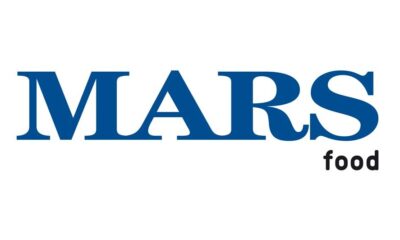

Economy
Exclusive interview: Fiona Dawson, Mars Food CEO
Yesterday Mars Food announced its commitment to using 100% sustainably sourced rice by 2020. We asked Fiona Dawson, Mars Food CEO, a few questions about the announcement and more broadly about sustainability.
What does the sustainable rice announcement mean for Mars commercially, socially and environmentally?
As owner of the world’s largest global rice brand, UNCLE BEN’S, we believe it is our responsibility to play a leading role in the development of the SRP (Sustainable Rice Platform) standard. We will be mapping our rice supply chain using the standard, identifying where we have gaps, and developing strategies for improvement. Mars Food has committed to sustainably source 100% of its rice by 2020 using the SRP standard. We made this commitment as part of our Food Purpose – Better Food Today. A Better World Tomorrow. – and consistent with the Mars Mutuality Principle. We believe adoption of the SRP standard represents a win-win for our rice farmers and our business.
And for us as consumers?
More and more, our consumers care about where their food comes from, how it is made, and the impact it has on the environment. Rice production today has a significant negative impact on our planet — it uses roughly 40% of the world’s irrigation water and is responsible for up to 10% of global greenhouse gas emissions. With Mars Food’s adoption of the SRP standard, our consumers can have confidence that the premium rice they purchase from us is produced responsibly.
Why did Mars do it?
Adopting the SRP standard is the right thing to do – for consumers, for our rice farmers, and for our business. Mars has an interest in ensuring a long-term supply of high-quality rice to continue producing the products our consumers love. Adoption of the SRP standard helps ensure a more sustainable rice crop into the future. Sustainable rice farming practices can also have a meaningful impact on the environment and farming communities.
We have already begun testing elements of the SRP standard with farmers in India and Pakistan, and research shows that it is possible to reduce GHG emissions and water use, while increasing yields for farmers. By adopting the SRP standard, we are mindful that rice is not only important to us as a business, but it is a staple food for half of the world’s seven billion people, all of whom depend on a sustainable rice crop for years to come.
Apart from a couple of years at Pepsi, you have been committed to Mars, a Fortune ‘top-rated’ company to work for. What’s the personal draw to Mars?
Mars is a great place to work because of its strong commitment to development and its unique relationship-driven culture. It is also a very inspiring business environment – between our Five Principles and our status as a privately held business, Mars Associates have an opportunity to shape our business over the long-term and advance initiatives that are mutual for all stakeholders. Mars Associates feel very passionate about our business and our Principles, and for that reason, many, like me, spend most of their careers at Mars.
You played a role in drawing up the UK’s Responsibility deal in 2011. What is it and what does it mean for retailers, suppliers and consumers?
Through the Responsibility Deal, companies like Mars have committed to taking action to help tackle some of our biggest public health challenges, like obesity. Mars Food U.K. has reduced salt content across its product portfolio, with 90 percent of products meeting the Responsibility Deal’s 2012 salt targets and 94 percent of our pasta sauces already meeting the 2012 targets. In 2011 we launched DOLMIO Bolognese sauces with 100 percent natural ingredients.
Many of our popular bars, such as Snickers, Mars, and Milky Way, have reduced their saturated fat content and meet our target to not exceed 250 calories per portion. We have also instituted workplace wellbeing programs for our Associates. Actions like these provide our consumers and Associates with healthier options as they seek to live balanced lifestyles. The Responsibility Deal works because it is a partnership of government, industry, and NGOs. Together, we can accomplish much more than any one stakeholder or company can alone.
There are 3.6m companies in the UK – how do we reach the point where every company in the UK adopts genuine ‘responsibility’ as a core business, management and leadership discipline? Paul Polman of Unilever said that his own organisation’s progress would be ‘a failure’ if others don’t follow.
While this week’s launch of the first-ever global standard for rice sustainability is a major milestone for the Sustainable Rice Platform and for Mars, it will only have lasting impact if more rice companies and suppliers adopt the standard. We believe our role is to lead by example – to demonstrate that doing the right thing for the environment can actually further growth and that operating as a responsible business is the right thing to do for all stakeholders.
Is corporate action commensurate with the environmental and social challenges we face, from the perspective of one the world’s largest companies?
At Mars, we believe we have a role to play in addressing the major environmental and social challenges we face. That is why we have stepped up to call for action on climate change, why we have invested significantly in renewable energy, why we are moving towards zero-waste-to-landfill across our manufacturing facilities, and why we are taking action on sustainability in our supply chains. Certainly, these challenges require partnership among a diverse range of stakeholders to identify solutions, but we are committed to doing our part.


 Environment12 months ago
Environment12 months agoAre Polymer Banknotes: an Eco-Friendly Trend or a Groundswell?

 Features11 months ago
Features11 months agoEco-Friendly Cryptocurrencies: Sustainable Investment Choices

 Features12 months ago
Features12 months agoEco-Friendly Crypto Traders Must Find the Right Exchange

 Energy11 months ago
Energy11 months agoThe Growing Role of Solar Panels in Ireland’s Energy Future



















